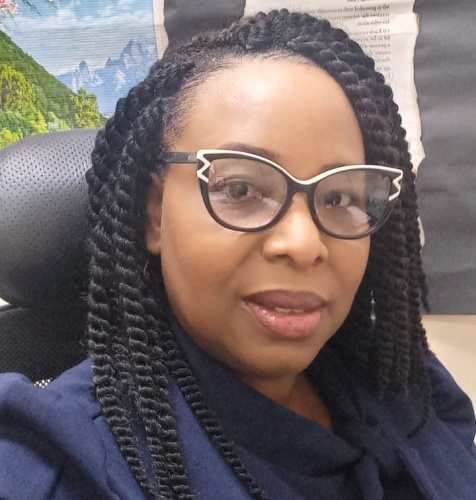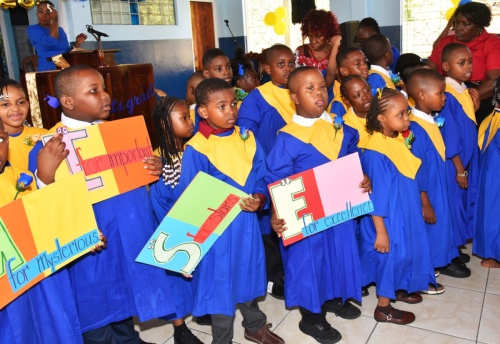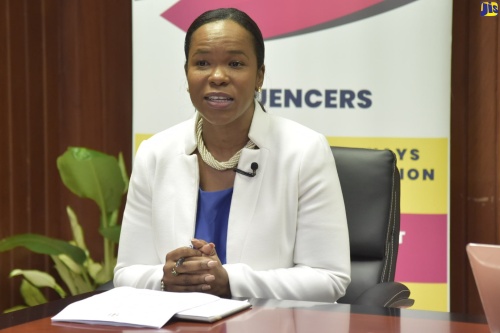Jamaica Making Progress in Special Education
By: , September 24, 2025The Full Story
Jamaica is making strides in special education, with significant investment made in creating an inclusive environment that offers tailored, student-centered approaches to learning to ensure that all children can reach their true potential.
A new curriculum for students with moderate to profound intellectual disabilities has been developed by the Ministry of Education, Skills, Youth and Information, in partnership with the United Nations Children’s Fund (UNICEF) and other stakeholders.
The curriculum, which was recently launched, emphasises functional academics, life skills, language, communication, science, and physical education to foster self-determination and appropriate social interaction for these students.
It stands as a testament of Government’s commitment to special education.
“Jamaica is heading in the right direction in special education…and I know we will continue to make strides,”
Special Needs Coordinator at the Education Ministry, Toween Campbell-Wilson tells JIS News.

Through the enactment of legislation and policy measures, building accessibility infrastructure, expanding teacher training, and working with various partners to create inclusive learning spaces, the Government is ensuring that students have appropriate educational opportunities.
The Special Education Unit oversees educational provisions for children with intellectual and learning disabilities, autism, visual or hearing impairments, and giftedness.
The unit monitors all public and private special education schools and programmes; provides access to diagnostic and placement services; offers guidance and resources to ensure students with diverse needs receive appropriate learning opportunities; and manages initiatives like the Braille & Large Print Programme, which creates educational materials in accessible formats for students with visual impairments.
Special accommodation is provided for students with disabilities who require additional support when sitting national examinations, both at the primary and secondary educational levels.

Newly constructed schools are provided with access ramps, and funding is allocated to cover specialised services including shadows/learning support assistants for students with disabilities in the general education system, which has allowed these students to access education in their neighbourhood schools.
“The shadows go to school every day and assist with just about every area of life from academics to moving around the campus, getting lunch, bathroom assistance,” Mrs. Campbell-Wilson points out.
She tells JIS News that more parents are accessing the services provided by the unit.
“We do a lot of capacity-building and as we sensitise and do awareness training, you find that more persons are coming for support… it is quite accessible,” she points out.
“We have parent consultations to explain the assessment report to them, and also make recommendations for suitable placement in school, and just general support on how to manage and cope with a child with special needs,” she adds.
Mrs. Campbell-Wilson says that gone are the days when parents could justify keeping their special needs children away from the formal education system.
“So, for parents who have special needs kids, who have them at home, I will encourage them to seek assistance –there is support, there is assistance. I encourage the parents to come to us to seek support, whether for placement, or to get guidance on how to get assessment, how to get other services… such as speech therapy; they will get that kind of guidance and support.
“They will also be encouraged to join the parent group where they get that additional moral support from other parents who are experiencing what they are experiencing as well,” Mrs. Campbell-Wilson points out.
She cites the Jamaica Council for Persons with Disabilities (JCPD) as a key organisation in supporting special needs students by providing scholarships and grants.
The JCPD is tasked with ensuring protection, inclusivity, and equal rights for individuals with disabilities, including children with learning differences.
Its services include facilitating employment, grants and aids, offering accessibility solutions, and providing public education.
“Once a parent comes into my office and the child is diagnosed, then I encourage them to have the child registered with JCPD,” Mrs. Campbell-Wilson tells JIS News.
Permanent Secretary in the Education Ministry, Dr. Kasan Troupe, says the Ministry continues to improve its services to ensure that no child is left behind.
“We continue to be agile, flexible and responsive as the needs emerge. We are determined to find a way, through partnerships and innovations to ensure that every learner, everywhere, can thrive,” she says.

The Early Stimulation Programme (ESP) in the Ministry of Labour and Social Security is another valuable resource for children with disabilities.
The ESP offers early intervention services for children (0-6) with various types of developmental disabilities.
Children are referred to the programme by health care workers, educators, and social workers, as well as parents.
The ESP is located at 95 Hanover Street, telephone number: 876-922-5585.


